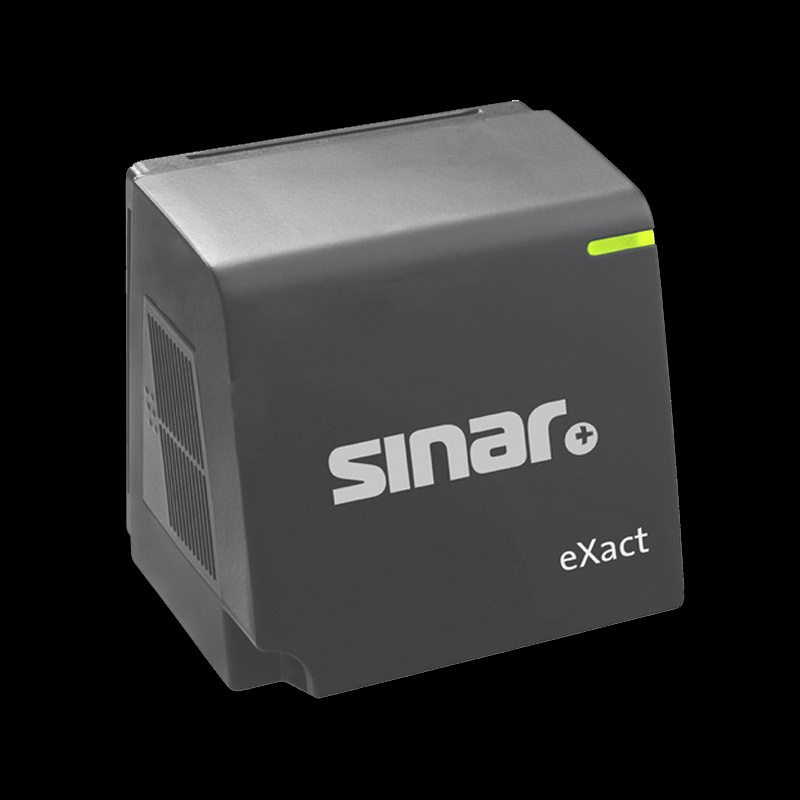By Heinz Richter
Leica has often been criticized for not having paid enough attention to digital photography, that a few years ago they fell hopelessly behind their competition. Yet in all this criticism one fact is getting lost these days, the fact that already in 1996 Leica introduced a high resolution digital camera, the Leica S1.
We must remember that this was at a time when 2 to 3MP digital cameras that took pictures of questionable quality were the norm, the days when film photography was still way ahead of digital and when the Leica M6 was the best 35mm film camera money could buy. In view of this, it is all the more amazing that the Leica S1 offered a resolution of 26 megapixels, something that even by today’s standards is quite high.

How could this be possible? At that time, resolution levels of this magnitude could only be achieved with so called scanning backs. Instead of taking the entire image instantly, as is the norm today, the Leica S1 (as well as other, similar digital cameras at the time) scanned the image line by line. Unfortunately this resulted in exposure times of about 185 seconds. Subsequently the camera was only useful for stationary objects.
The camera was designed to capture square 36 x 36mm images using 35mm lenses. Though designed for use with Leica R-series lenses, Leica also offered lens mounts for Nikon, Contax, Canon FD, and Minolta lenses as well as for medium-format optics from Hasselblad and the Pentax 6x7. There was also a Novoflex adapter that allowed the use of large-format lenses from Rodenstock & Schneider, and a tilt-shift adapter for use with Hasselblad lenses.

Leica S1 with Leica R mount
The S1 could also be coupled to the rear of a view camera to take advantage of tilt, swing, and shift movements which further increased the overall versatility of the camera.
The ISO setting for the S1 was ISO 50, the D-max about 3.3, and the image files contained a dynamic range of 11 stops. At 300 dpi you could produce incredibly sharp 17 x 17" prints without having to interpolate the image, which in 1996 was almost unheard of.

Leica S1 Side View

Leica S1 Viewfinder
Included with the Leica S1 was a 55mm IRa filter, LaserSoft High Software, a PCI card (PC or Mac), and a 20' cable. As for system requirements, the S1 ran off of PowerMacs (7.55 or higher), or Pentium PCs (Windows 95 or higher) with a minimum of 256MB of RAM, a hard drive of at least 1GB, and Photoshop 3.05 or higher.

All that could be had for the price of $21,500. Needless to say, the camera did not set any sales records. It was mostly sold to museums and research institutions. It is interesting to note that this level of performance was not available again from Leica until the introduction of the Leica S2 in 2008.
Considering the shortcomings in terms of short exposure capabilities, the question is if scanning backs are still a viable choice in these days of digital instant capture systems with up to 150 megapixels. The answer is ‘yes’. When it comes to optimum resolution, and when instant capture is not necessary, scanning backs still offer the highest resolution, highest color fidelity and highest color accuracy.

Here too we can look to Leica or to their latest acquisition, Sinar of Switzerland. Among the many items offered by them is the Sinarback eXact with a maximum resolution of 192 megapixels. With the eXact back Sinar uses a different approach to common scanning backs. It can be used as an instant capture back with a resolution of 48 megapixels. But it can also simulate a scanning back by taking 4 separate exposures in RGB and black for an effective total resolution of 192 megapixels and the color accuracy of a scanning back.
Are there any other means to achieve a super high resolution? The answer is yes. The Leica SL 2 camera offers a feature, not unlike a scanning system. With the help of sensor-shift technology, the camera can capture up to eight images in sequence in multishot mode on a tripod, with the sensor shifting in half-pixel increments between each shot. The results provide users with images that are of extremely high resolution, up to 187 MP.
With The Sinar eXact back and the rest of the digital cameras offered by Leica, they have by far the widest palate of digital cameras and digital accessories for the professional photographer.
For other articles on this blog please click on Blog Archive in the column to the right
For other articles on this blog please click on Blog Archive in the column to the right
To comment or to read comments please scroll past the ads below.
All ads present items of interest to Leica owners.
_______________________________________________________________________
To comment or to read comments please scroll past the ads below.
All ads present items of interest to Leica owners.
_______________________________________________________________________
Buy vintage Leica cameras from America's premier Leica specialist
Buy vintage Leica cameras from
America's premier Leica specialist
Click on image to enlarge
Click on image to enlarge
Click on image to enlarge
Click on image to enlarge
Click on image to enlarge
Click on image to enlarge
















No comments:
Post a Comment